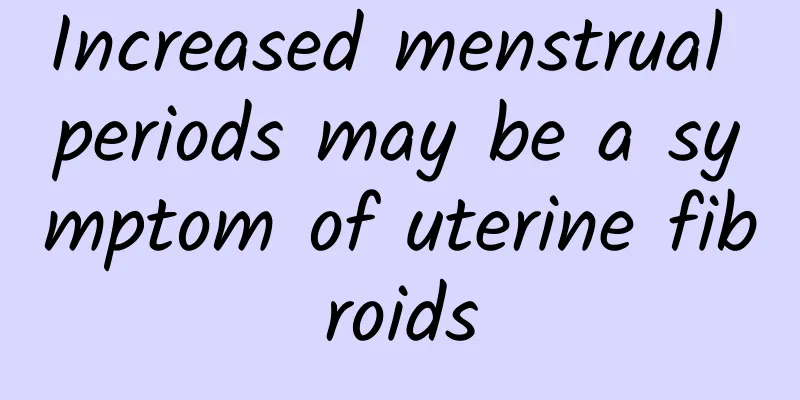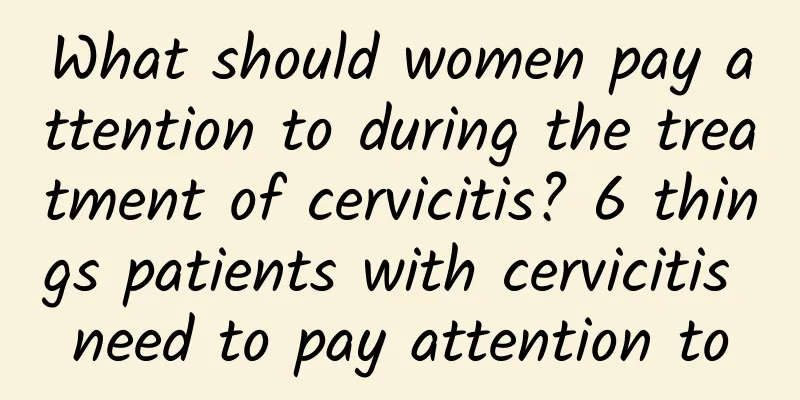Increased menstrual periods may be a symptom of uterine fibroids

|
Increased menstruation may be a symptom of uterine fibroids, which can generally be seen from many parts of the body. So what are the other symptoms of uterine fibroids ? The following authoritative experts will give you detailed answers. I hope that reading this article will be helpful to you. The main symptoms of uterine fibroids are as follows: First, increased menstruation It is the most common symptom of uterine fibroids, which mostly occurs in submucosal and intramural fibroids, and manifests as menorrhagia, prolonged menstruation or irregular vaginal bleeding. The main causes of this symptom of uterine fibroids are: the area of the endometrium increases, the endometrium proliferates due to the effect of estrogen, the fibroids hinder the contraction of the uterus, and affect the blood circulation, causing the endometrium to become congested. Due to long-term bleeding, patients often have varying degrees of anemia. Second, compression symptoms If the fibroids located in the lower part of the uterus and the cervix are incarcerated in the pelvic cavity, they can compress the pelvic tissues and nerves, causing lower abdominal pain and back pain, which are symptoms of uterine fibroids. If the fibroids grow forward or backward, they can compress the bladder, urethra or rectum, causing frequent urination, dysuria, urinary retention or constipation. When the fibroids grow to both sides, they form broad ligament fibroids, which can compress the ureters and cause hydroureteral or renal pelvis; if they compress the pelvic blood vessels and lymphatic vessels, they can cause lower limb edema, which are symptoms of uterine fibroids. Third, pain The symptoms of this type of uterine fibroids are relatively rare. In addition to the pain caused by compression of the pelvic nerves, the pedunculated submucosal fibroids cause uterine contractions in the uterine cavity and produce pain. When the fibroids block the cervical canal and hinder the outflow of menstrual blood, it can cause symptoms of dysmenorrhea. When the pedicles of pedunculated subserosal fibroids are twisted or when the uterine fibroids become red or infected during pregnancy, they can cause more severe abdominal pain. The above is an introduction to the symptoms of uterine fibroids. I hope it will be helpful to you. If you still have questions, please consult experts online. They will give you appropriate suggestions. Thank you for your support and trust in this website. I sincerely wish you a healthy body. |
<<: There are many symptoms of Trichomonas vaginitis in the vagina
>>: Symptoms of uterine fibroids can be seen from the compression symptoms
Recommend
Protein and dietary fiber are essential for breakfast! Nutritionist: High fiber and high protein help you feel smooth and energetic
People who eat out should have a balanced breakfa...
Dietary taboos for patients with vulvar leukoplakia
Many patients with vulvar leukoplakia choose some...
Explain the symptoms of severe cervical erosion
Clinically, the treatment of severe cervical eros...
What are the dangers of hyperprolactinemia?
Hyperprolactinemia is a hypothalamic-pituitary-go...
Half size smaller! Reduce edema and eat light potassium + E
I have edema again, what should I do? Office work...
Which New Year's dish has the highest calories? Understand it in seconds with just one table, and don’t misunderstand Buddha Jumps Over the Wall again! 2 Diet Tips to Get Rid of Happy Fat
The Chinese New Year is coming, and the reunion a...
Pink watery bleeding during ovulation
Pink, watery bleeding during ovulation is usually...
Homemade popular black bean water! 2 steps to DIY
People who want to lose weight must know that wei...
Can Panax notoginseng cure irregular menstruation?
Panax notoginseng cannot directly cure irregular ...
Do endometrial polyps require surgery?
Whether endometrial polyps require surgery depend...
Is it harmful to have sex right after an abortion? How long after an abortion is it safe to have sex?
After an abortion, a woman's body is relative...
Treatment of uterine fibroids
Uterine fibroids are the most common benign tumor...
What is the pathogenesis of ovarian cysts in traditional Chinese medicine? Will ovarian cysts lead to miscarriage?
What is the pathogenesis of ovarian cysts in trad...
Vaginitis examination
Vaginitis is a common disease in gynecological cl...
What are the causes of uterine fibroids?
Many female friends find it strange that they usu...









